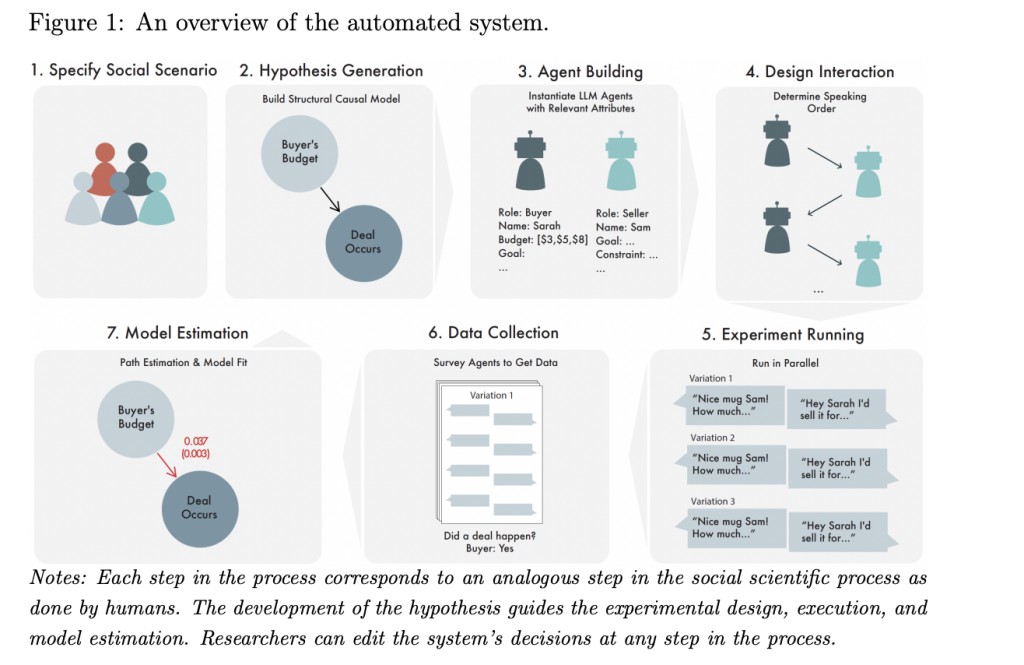Recent advancements in econometric modeling and hypothesis testing have witnessed a paradigm shift towards integrating machine learning techniques. While strides have been made in estimating econometric models of human behavior, more research still needs to be conducted on effectively generating and rigorously testing these models.Â
Researchers from MIT and Harvard introduce a novel approach to address this gap: merging automated hypothesis generation with in silico hypothesis testing. This innovative method harnesses the capabilities of large language models (LLMs) to simulate human behaviour with remarkable fidelity, offering a promising avenue for hypothesis testing that may unearth insights inaccessible through traditional methods.
This approach’s core lies in adopting structural causal models as a guiding framework for hypothesis generation and experimental design. These models delineate causal relationships between variables and have long served as a foundation for expressing hypotheses in social science research. What sets this study apart is using structural causal models not only for hypothesis formulation but also as a blueprint for designing experiments and generating data. By mapping theoretical constructs onto experimental parameters, this framework facilitates the systematic generation of agents or scenarios that vary along relevant dimensions, enabling rigorous hypothesis testing in simulated environments.
A pivotal milestone in operationalizing this structural causal model-based approach is the development of an open-source computational system. This system seamlessly integrates automated hypothesis generation, experimental design, simulation using LLM-powered agents, and subsequent analysis of results. Through a series of experiments spanning various social scenarios—from bargaining situations to legal proceedings and auctions—the system demonstrates its capacity to autonomously generate and test multiple falsifiable hypotheses, yielding actionable findings.
While the findings derived from these experiments may not be groundbreaking, they underscore the empirical validity of the approach. Importantly, they are not merely products of theoretical conjecture but are grounded in systematic experimentation and simulation. However, the study raises critical questions regarding the necessity of simulations in hypothesis testing. Can LLMs effectively engage in “thought experiments†to derive similar insights without resorting to simulation? The study conducts predictive tasks to address this question, revealing notable disparities between LLM-generated predictions and empirical results and theoretical expectations.
Furthermore, the study explores the potential of leveraging fitted structural causal models to improve prediction accuracy in LLM-based simulations. By providing contextual information about scenarios and experimental path estimates, the LLM performs better in predicting outcomes. Yet, significant gaps persist between predicted outcomes and empirical and theoretical benchmarks, underscoring the complexity of accurately capturing human behavior in simulated environments.
Check out the Paper. All credit for this research goes to the researchers of this project. Also, don’t forget to follow us on Twitter. Join our Telegram Channel, Discord Channel, and LinkedIn Group.
If you like our work, you will love our newsletter..
Don’t Forget to join our 40k+ ML SubReddit
The post This AI Paper from MIT and Harvard Demonstrates an AI Approach to Automated in Silico Hypothesis Generation and Testing Made Possible Through the Use of SCMs appeared first on MarkTechPost.
Source: Read MoreÂ



